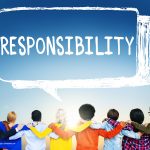Kindness is More Than Cotton Candy
“When we are kind, stress levels lower, a sense of belonging increases, ability to concentrate rises, and there is a boost in happiness levels. Kindness has a core connection to success and happiness making the necessity of kindness non-negotiable.”
-Janelle Kay
ow, I looked at my colleague across our shared table in awe as she breathed life into these words.I told her she’s incredible. “Oh, I found that quote somewhere on a teaching blog, isn’t it great!?” As fabulous as my colleague is I want to whisper a quiet ‘thank you’ into the chains of the interwebs to the human who ACTUALLY wrote those words. A quick fact check finds all of these things to be true, and when I hear that, I immediately connect the power of kindness to the work of prevention. When I think of kindness it feels like fluff, something sweet, something extra, something we don’t get all of the time, but something so necessary. Kindness is more than cotton candy.
Kindness is Natural.
It’s probably easy to scoff at this one as we examine the world around us, but science tells us it’s true! We enter this world with a preference for compassion and altruism. Michael Tomasello, and his team at the Max Planck Institute for Evolutionary Anthropology in Germany conduct research around the capacity for cooperation. They have found that human infants and even chimpanzees will overcome obstacles to work together, to share, and to engage in helping (2006). The pupils of a baby will actually dilate when they engage in or witness helpful behavior, indicating that this kindness is intrinsically motivated—an impulse for us from birth (Hepach et al. 2016).
We also know that intrinsic motivation is a key ingredient for behavior change. The field of prevention has worked diligently for years to motivate people toward action. Can we imagine the success we may have if we foster that instinct we begin to stifle at such young ages? If we foster that instinct toward kindness and engaging in those helpful acts for those in our communities – that sounds like prevention to me.
Kindness is Contagious.
Really, it is! Research out of the University of California, Los Angeles, The University of Cambridge,and the University of Plymouth echo these sentiments (Schnall, S. et al. 2010).”When you feel this sense of moral ‘elevation’ not only do you say you want to be a better person and help others,” said Simone Schnall, lead researcher.“But you actually do when the opportunity presents itself.” This study basically applies the knowledge that,for the most part, human nature isinherently good and when we witness acts of kindness we’re more likely todo better.
Well, if we’re going to do better with anything it can certainly be prevention. Prevention is something we must DO. Regardless of the role we play, we all must take part in prevention actively; it’s not something that’s just happening around us. We certainly do this through acts of kindness, by checking in on people as needed. How incredible to know that as we model that behavior, as folks are witness to our kind acts, they too are more likely to DO better. That’s a type of contagious that I’m on board with!
Kindness is Key.
Kindness has little cost but huge payoffs, both for us as individuals and for the people we impact daily in our circle of influence. As my friend nonchalantly read that quote my brain was like a video game unlocking a new level; in hindsight it seems like the obvious choice. Kindness is often overlooked, seen as rare and without major value. That’s just not true. Sure, maybe kindness is something fluffy, maybe it’s something sweet, maybe it’s something extra, and maybe we don’t get it all the time, but kindness is necessary. Kindness is more than cotton candy. Perhaps you only have a spare 5 minutes, or you have a full hour, maybe you’ll only have an opportunity when it presents itself, but how can you work toward inserting a little extra kindness in your life today?
Citations:
Hepach R., Vaish A., Grossmann T., & Tomasello M. (2016). Young children want to see others get the help they need.
Mehner, S. (2010, April 21). Kindness is Contagious, New Study Finds. Retrieved from https://helix.northwestern.edu/article/kindness-contagious-new-study-finds.
Schnall, S., Roper, J., & Fessler, Daniel. (2010). Elevation Leads to Altruistic Behavior. Psychological science. 21. 315-20.
Warneken, F., & Tomasello, M. (2006). Altruistic helping in human infants and young chimpanzees. Science, 311, 1301–1303.






